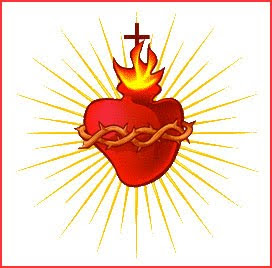I've often felt that, for Catholics, the human body—alive or dead—is a huge problem: indeed a puzzling obstacle that sends them into a state of confusion, frenzy, panic, anguish… They proclaim and like to think that their religious preoccupations are of a profoundly spiritual, highly abstract, nature. Look at theological concepts such as the Trinity, for example, or the Immaculate Conception. But, when all is said and done, their constant stumbling block is the hunk of meat in which our alleged soul resides. Catholics don't know how to react whenever they realize that these hunks of meat have sexual desires, particularly if it's just for fun, without the honorable intention of giving rise to a tiny hunk of new meat known as a baby. On the other hand, this kind of situation has often been condoned when one of the two hunks of meat is wearing a priest's collar, while the other is young and tender.
As a child, I received a minimum of religious instruction of a Protestant (Anglican) kind. Unlike Catholics, these folk weren't obsessed by holy blood such as the drops that ooze from the wounds inflicted by a crown of thorns, or the sacred red heart that pumps this precious liquid through the hunk of meat.

I always looked upon these Catholic obsessions as somewhat yucky, like a polite religious variation on vomit or excrement. I guess I simply didn't like to be reminded that I was basically a more-or-less disgusting hunk of meat, capable of getting transformed into minced steak in a head-on automobile collision, of being roasted to a chocolate color in an air crash, of turning blue and swelling if immersed under water for a few hours, or of creating a puddle of viscous red liquid if somebody decided to plunge a knife into my precious live meat.
Catholic obsessions with the human body can become frankly sick when the meat has lost its usual energy and warmth, and been transformed into a cold corpse. In an article on Catholic diocesan archives written by a friend in Marseille, we learn that their classification system starts with an unexpected category:
relics! They precede matters such as nuns, monks, hospitals, prisons, schools and even papal encyclicals. You know what they mean by relics: tiny glass flasks of solid blood that liquefy on certain occasions, ugly brownish bones that look like something the dog discovered in a trash can, polished skulls, tufts of hair, and all kinds of mummified odds and ends. It's weird that ecclesiastic authorities should still be concerned about all this archaic biological junk, as if it retained some kind of metaphysical significance.

A forensic surgeon would surely be fascinated by a nice collection of such stuff, such as you find in the treasure troves of certain cathedrals. He would start to see DNA charts flashing before his eyes, and he would praise the Church for preserving such nice specimens. But he would be furious if such-and-such a relic labeled "
Saint Somebody, holy martyr" turned out to be rather a charred fragment of a dog or a cat.
Not surprisingly,
Pope Benedict XVI is acutely aware of the contemporary meat situation, viewed from many different angles. And he never stops fighting to impose his beliefs.

Before Ratzi landed the big job (that's to say, back at the time he was simply a more-or-less honest citizen of Rome, spending time on grave matters such as pedophilia affairs), he used to carry a card stating that, in the case of his death, his bodily organs were to be made available for transplants. It appears that he saw this idea as "
an act of love". Well, an interesting article reveals today that this is no longer the case
[access article]. The potential act of love has been aborted, before it even started. The Vatican has made it known that Benny doesn't have the right to dispose of his dead meat as he sees fit.
Vatican authorities point out that, after the death of a pope, his body belongs to the Church as a whole, and must be buried intact. The article concludes with a glorious specimen of twisted thinking, of a Byzantine kind: If papal organs were donated, and the pope then happened to be made a saint, his transplanted organs—located in alien living bodies—would become relics! And that, of course, would create an awesome ecclesiastic meat problem. It would be akin to grinding up rare venison to make fast-food burgers.













































